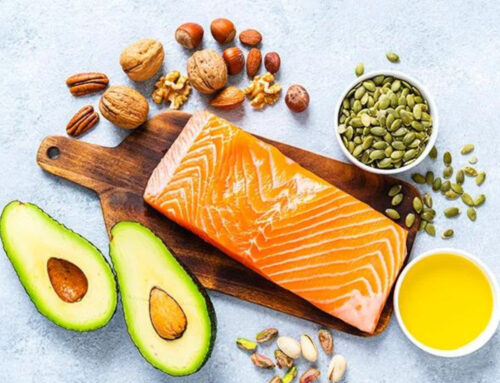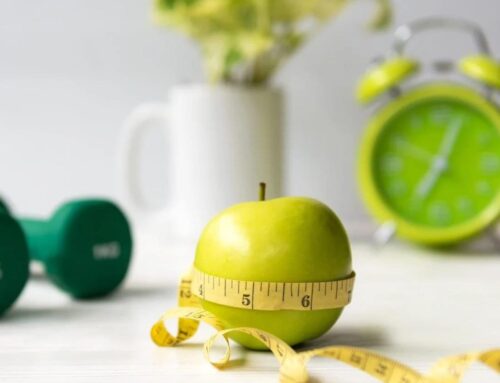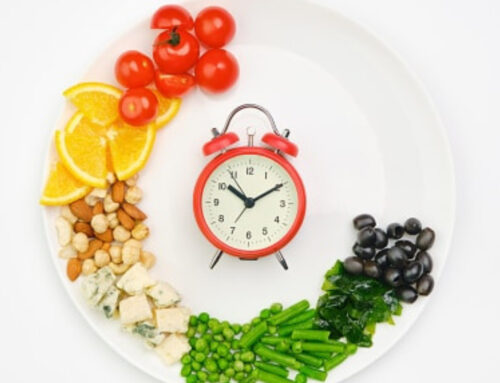I get a lot of questions from women who struggle with period pain. Menstruation can be a difficult time in your cycle. What can you do to make it easier?
There are a lot of long-term solutions to make your period more comfortable. You can reset your hormones, change your diet, track your cycle, sync your workouts with your phases—that’s all great, and it’s worth doing. But is there anything that can make you feel better right now?
Yes!
One of the simplest (and fastest-acting) things you can do to ease period symptoms is replenish your body’s mineral stores. Here’s a look at why it works, and how you can use minerals during your period to feel better in literal minutes.
You Lose a Lot of Minerals During Your Period
There’s a reason you feel depleted during your period. When you menstruate you lose a lot of nutrients, depriving your cells of the building blocks they need to function properly. The best-known example of this is iron. Your blood is iron-rich, which means when you’re menstruating, you lose a LOT of iron—so much so that anemia (iron deficiency) is common in women with heavy periods.
In fact, if you feel exhausted or get brain fog during your period, you may just be low in iron—fatigue and reduced cognitive function are the two most common symptoms of iron deficiency. And it’s not just iron you lose.
Period blood is also very high in electrolytes—particularly sodium, potassium, magnesium, and calcium—that keep your uterine environment acidic, killing bacteria and helping your uterus stay healthy when you menstruate.
The downside is that these minerals get depleted during your period, which leaves you dehydrated and exacerbates a lot of common period symptoms, including:
- Headaches
- Fatigue
- Bloating (your body prioritizes retaining water when your electrolytes are low)
- Brain fog
If you’re struggling with a difficult period, low minerals may be the culprit—and replenishing those minerals can help you feel a lot better.
Minerals Help with Cramps, Fatigue, Bloating, and More
Replenishing the minerals you lose during your period can make a big difference in your menstrual symptoms. Refilling your mineral stores can help with:
- Fatigue: Low iron, calcium, potassium, and sodium all independently cause fatigue, [*][*]
and research shows that replenishing them fixes the problem. [*][*] - Cramps: You cramp during your period because of a sudden increase in prostaglandins,
inflammatory compounds that stimulate uterine contractions. [*] A 2017 review found that
taking magnesium can ease period cramps by helping your muscles relax, [*] and a
2018 study found that magnesium lowers prostaglandin-related inflammation. [*] - Headaches/migraines: Research shows that magnesium also helps relieve period-
related headaches and migraines. [*] - Bloating: Menstruation causes you to lose a lot of electrolytes, which dehydrates
you—and when you’re dehydrated, your body starts holding on to water to prevent you
from losing more of it. It sounds counterintuitive, but dehydration actually makes you
bloated, and replenishing your electrolytes (along with drinking plenty of water) can
make a big difference in bloating during your period. [*]
If you struggle with any of these symptoms, take a high-quality mineral supplement! It can make a huge difference in how you feel during your period, and because everything on the list above is reversible, you’ll feel better within minutes.
One of my my favorite mineral supplements is from BEAM Minerals, because of how easy they make it to get ALL your minerals at once. You just take a one-ounce shot of concentrated, mineral-rich liquid in the morning (it tastes like water) and it replenishes every essential mineral your body needs, in the right amounts, with high bioavailability. It’s foolproof—no need to get a cabinet full of supplements—and you’ll feel it working almost immediately.
If you want to give them a try, use the code “MINDY” at checkout for 20% off your first order. However you choose to do it, replenishing the minerals you lose during menstruation can make a night-and-day difference in your period symptoms.
Try it for yourself during your next cycle—you may be surprised by how much better you feel!









Leave A Comment